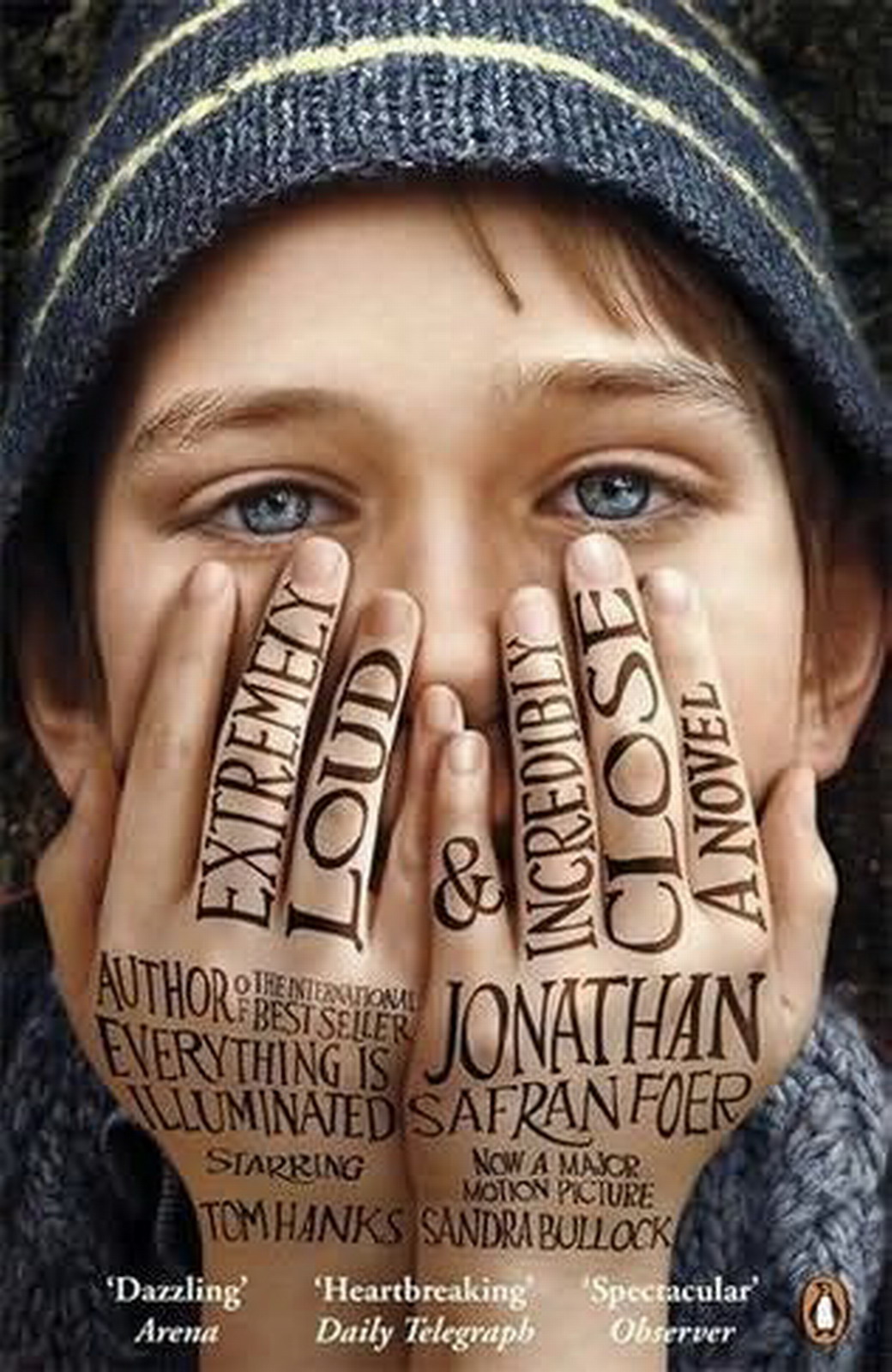Book Review: Extremely Loud Incredibly Close
Unexpected incidents caught our emotions off guard. My question is, even if we do prepare ourselves for such loss, could we be sure that we will be okay? Would we handle things differently or will the overwhelming emotions still be catching on us?
Left.
Right.
Thank you Eera Zaher, for lending this to me :)
As I put the book down, I had this bottled up feelings inside of me, which content are from the emotions that all the characters have been going through. Like I was a part of them too. Oskar Schell, aged 9 has lost his father to the 9/11 incident. They had a very close relationship so it was very hard for him to deal with the loss. Different people dealt with their loss differently but they always got to the same place as they walk, a wall. There will always be this big, solid invisible wall built from all of your emotions that separated you from the real world. They could come in a square, a circle, a rectangle or even triangle with you in the centre of it, trying to find your way out. Or the wall could be in your way from reaching a destination. Or the emotions could come in a form of a boulder which you will be pushing in a circle. Your emotions determine the strength of the wall (or the boulder). The more intense your emotions are, the stronger the walls are. To break them down, you're gonna have to deal with your emotions first. If only we could ship away the feelings that we do not want to feel. Could we do that? I guess that's impossible.

"It was so dark that it was even hard to hear."
A mom lost a husband. An unborn child, lost a father.
Could it still be called a loss when the father himself chose to walk away?
Whose loss will it be?
The father's?
Or the wife and the unborn child's?
....................................................................................................................................
A son loses a father. A wife loses a husband. A mom loses a son and a father loses a son.
And the father who left came back to mourn over his son's death. The one that he chose not to be with when he was still alive. Irony.
The losses on the book rooted in the events in which they do not have the power to stop them. A war. The 9/11 terrorist attack (so they said). In the book, after his father's death, Oskar found a key in a blue vase in his father's closet with a name on the envelope the key was put in, Black. He then set a search to find the lock to which the key could open, with the three clues; the key, a name and a vase. He was determined to go to every Black in the city and find the lock of the key. In his journey, the life of his family unraveled, told in different shades of colours but still revolving around the same story, a loss. Oskar's determination to find the lock was almost illogical. It would probably take him years to go to all the Black in the city and he still had a slim chance of finding the right lock but he was determined to find it.
The book is fascinating in a way how the characters dealt with their loss, very uniquely. In his visits, there was a Black who drew the face of the same man over and over again, there was a couple who made museums of each other, there was a person who lived in the Empire State Building since her husband died, and has not gone down since then. There was a Mr. Black who had always prepared snacks just in case the person he was waiting to come back show up. Mr. Black who lived upstairs had a tree that he pulled out of a park which he put in his bedroom, the tree which his wife stumbled over the root. After his wife died, he put a thumbtack every day on the tree until the tree becomes a mini magnet. How a couple separated because the husband was mourning too much in his past mistakes with his late father that it affected his marriage. The name Black itself is symbolic with what the colour is usually associated with. Darkness, emptiness, unpleasant things.
"I'm so afraid of losing something I love I refuse to love anything."
Another part that I loved was about his grandparents' relationship. They were survivors of the German war, in Dresden. They met each other in US and got married. His grandfather slowly lost his words in his speech and soon after, he stopped talking. Funny how his whole life since then could be seen in the pages on the books he used to communicate with people. They also had Nothing and Something area in their apartment. Whenever one was at the Nothing area, the other one must pretend that he/she does not exist, invisible. I guess when you had survived a grueling war and has lost the people so dear to you, sometimes when the memories came back you just need a space to evaporate yourself. To go to a place that does not even exist because it can further convince you of your non-existence. To not care and to not be cared for. You just want to be invisible even for a while. He left after he knew that the grandmother was pregnant. It violated the rules that they had agreed on, no children but he wrote letters to his son everyday ever since. To my unborn child, to my son. Most of them were not sent. His grandmother only ever gave one letter that the grandfather sent to his son.
Another thing that I love about the book is the pictures. Yes, those up there and also these;
By the end of the book, Oskar did found the lock of the key but it has got nothing to do with his father, it was someone else's father. There was also no mentioning whether he got over the grief or not. I guess it is hard, dealing with loss but I guess it's a part of the process in life. Our relationships with other people, are attachments of the world in which we could be broken beyond repair if we hold on to it too tight. But that does not mean that we should not love at all. I guess it would be a good idea to draw a line. I am not in any position to comment on this as different people would be dealing with different level of pain depending on what causes it.
But hey, I love this book.
To all those suffering from sadness or depression, know that it isn’t your fault. It isn’t because you’re weak. It isn’t because you’re just not grateful enough. It isn’t because you’re just not religious enough. It isn’t because you don’t have enough faith. It isn’t because God is angry with you. To all the well-meaning people who tell you this, just smile. And know deep in your heart that the tests of God come in different forms to different people. And know that, by the help of God, every test can become a tool to get closer to Him. And that, verily, with hardship come ease–and like all things of this world–this too shall pass.
(Yasmin Mogahed)







Comments
Post a Comment
Comments